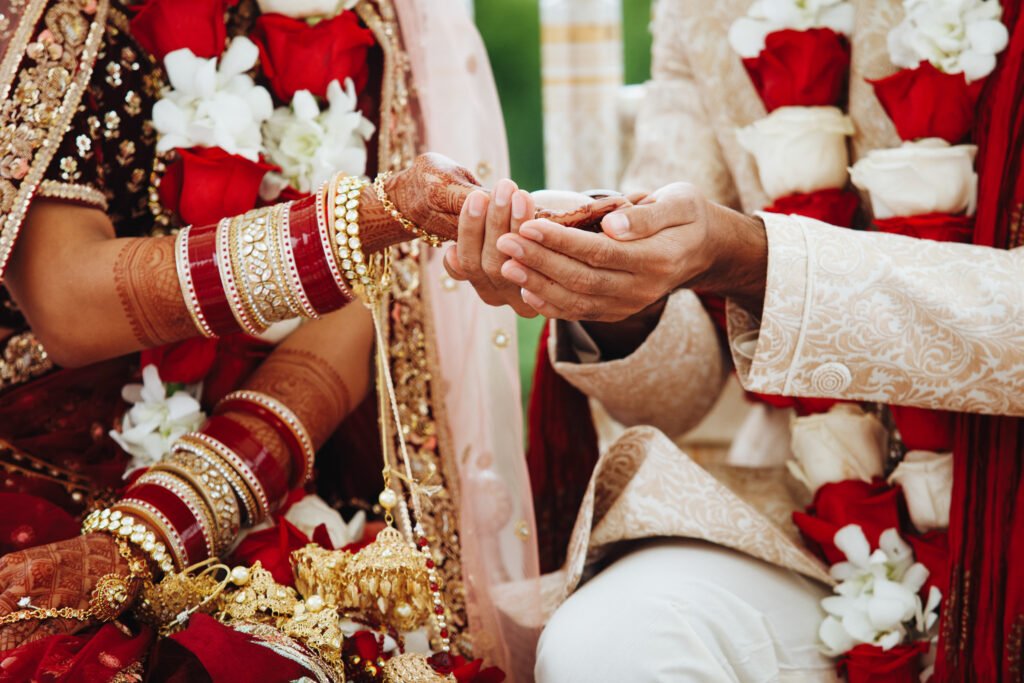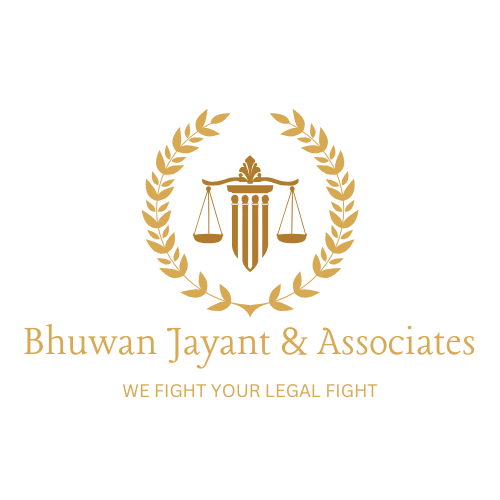Court Marriage
Court Marriage Law
Court marriage under the Special Marriage Act requires specific legal procedures and documentation to ensure a valid and legally recognized marriage.
1. Notice of Intended Marriage
Submit a formal notice to the Marriage Registrar specifying the intention to marry, which is displayed publicly for 30 days for objections.
2. Proof of Age
Birth certificate, school leaving certificate, or passport to confirm that both parties meet the legal age for marriage.
3. Address Proof
Government-issued identification such as Aadhaar, passport, or voter ID for both parties to establish residence.
4. Identity Proof of Witnesses
At least three witnesses must provide valid ID proofs who will be present during the marriage registration.
5. Affidavit of Marital Status
Affidavits stating that both parties are unmarried or legally free to marry, duly notarized.
6. Passport-size Photographs
Recent passport-sized photographs of both parties, typically 2–4 each, required for documentation and registration forms.
7. Marriage Registration Form
Complete the official marriage registration form available at the Marriage Registrar's office, signed by both parties and witnesses.
8. Marriage Certificate
After verification of all documents and completion of formalities, the Marriage Registrar issues a legally valid court marriage certificate.
What are the Documents You Need for Court Marriage Law?
Proper documentation is essential for court marriage registration under the Special Marriage Act. Below are the key documents required for legally valid court marriages.
1. Proof of Age
Birth certificates, school leaving certificates, or passport to verify the legal age for marriage.
2. Address Proof
Government-issued ID such as Aadhaar card, passport, or voter ID to establish residence.
3. Passport Size Photographs
Recent passport-sized photos of both bride and groom for official records and registration forms.
4. Affidavit of Marital Status
Affidavits declaring that both parties are unmarried or legally free to marry, notarized as required.
5. Witness Documents
ID proofs of at least three witnesses who will be present during the marriage registration process.
6. Marriage Notice
Formal notice submitted to the Marriage Registrar, which is published for 30 days for public objections.
7. Divorce/Death Certificate (if applicable)
In case of a previously married party, legal proof of divorce or spouse’s death is required.
8. Application Form
Duly filled application form for marriage registration, available at the Marriage Registrar office or online.
How Do Advocates Help in the Court Marriage Process?
- Before submitting the marriage registration, the parties should consult with their legal representative. The easiest way for them to navigate the Civil marriages procedure is to have an expert lawyer in Delhi.
- A lawyer for court marriages in Delhi can be very helpful. Legal counsel bears a great deal of responsibility, starting with the submission of the application, confirming it, and informing the parties about the specifics of the registration process.
- The parties to the marriage will receive legal advice from civil matrimonial advocates regarding relevant laws, the registration site, and the registration procedure.
- A Civil matrimony advocate in Delhi attests to the fact that both parties freely consented to the marriage and that both must be of legal age in order to register for it.
- All of the paperwork needed for the court marriage registration procedure is gathered by an advocate. By saving time and reducing workload, it benefits both spouses in the marriage.
- At a time agreeable for both parties, the advocate discusses the marriage license paperwork with the parties. The three witnesses at the marriage registrar’s office.

Why Choose Us
At Bhuwan Jayant & Associates, our dedication, expertise, and client-first approach make us one of the most trusted law firms. We strive to deliver practical, transparent, and result-oriented legal solutions.
Experienced Legal Team
Our lawyers have extensive courtroom and advisory experience across diverse legal domains, ensuring strong representation.
Client-Centered Approach
We prioritize our clients’ needs, offering personalized strategies and transparent communication throughout the case.
Proven Track Record
We have successfully handled numerous complex cases with favorable outcomes across various courts and tribunals.
Ethical & Transparent Practice
Integrity is the foundation of our work. We maintain full transparency with our clients regarding fees and case progress.
Comprehensive Legal Solutions
From consultation to litigation, we provide end-to-end legal support tailored to your unique situation.
Timely & Efficient Services
We understand the value of time and ensure swift legal actions without compromising on quality or diligence.
Frequently Asked Questions - Court Marriage
A court marriage is a legal marriage solemnized under the Special Marriage Act, 1954, without any religious rituals. It is recognized by law and valid nationwide.
The bride and groom must be of legal age (21 for men, 18 for women), mentally competent, not closely related, and both must consent to the marriage.
Common documents include proof of age (birth certificate or school certificate), address proof, identity proof (Aadhar, passport), and passport-sized photographs of both parties.
After filing the marriage notice, there is a mandatory 30-day waiting period. The actual marriage can take place after this period, depending on the court schedule.
Yes, a foreign national can marry an Indian citizen under the Special Marriage Act, but additional documents like passport, visa, and a No Objection Certificate may be required.
Yes, court marriage is a secular legal process and is valid irrespective of the religion of the parties. No religious rituals are necessary for legality.

